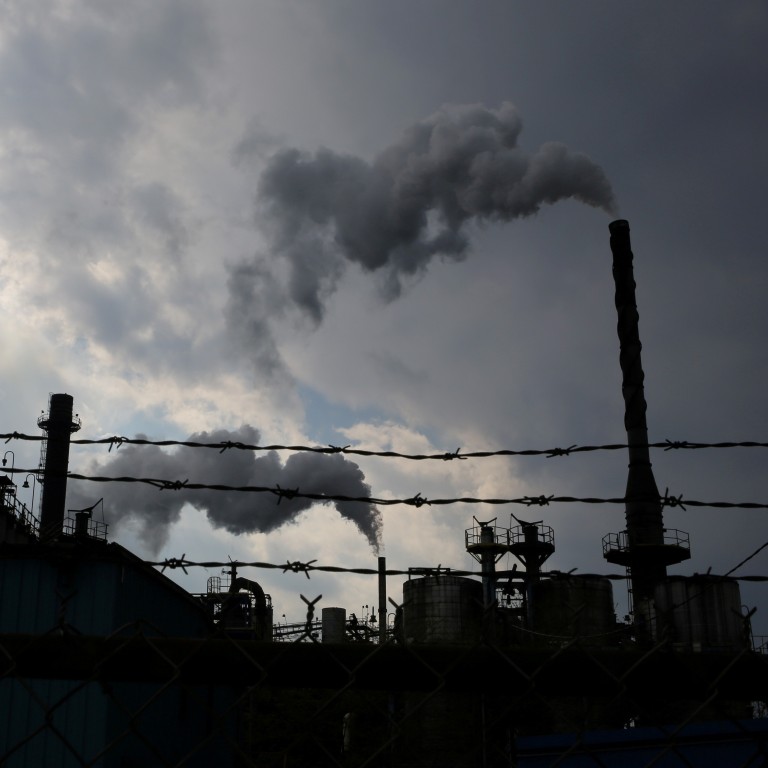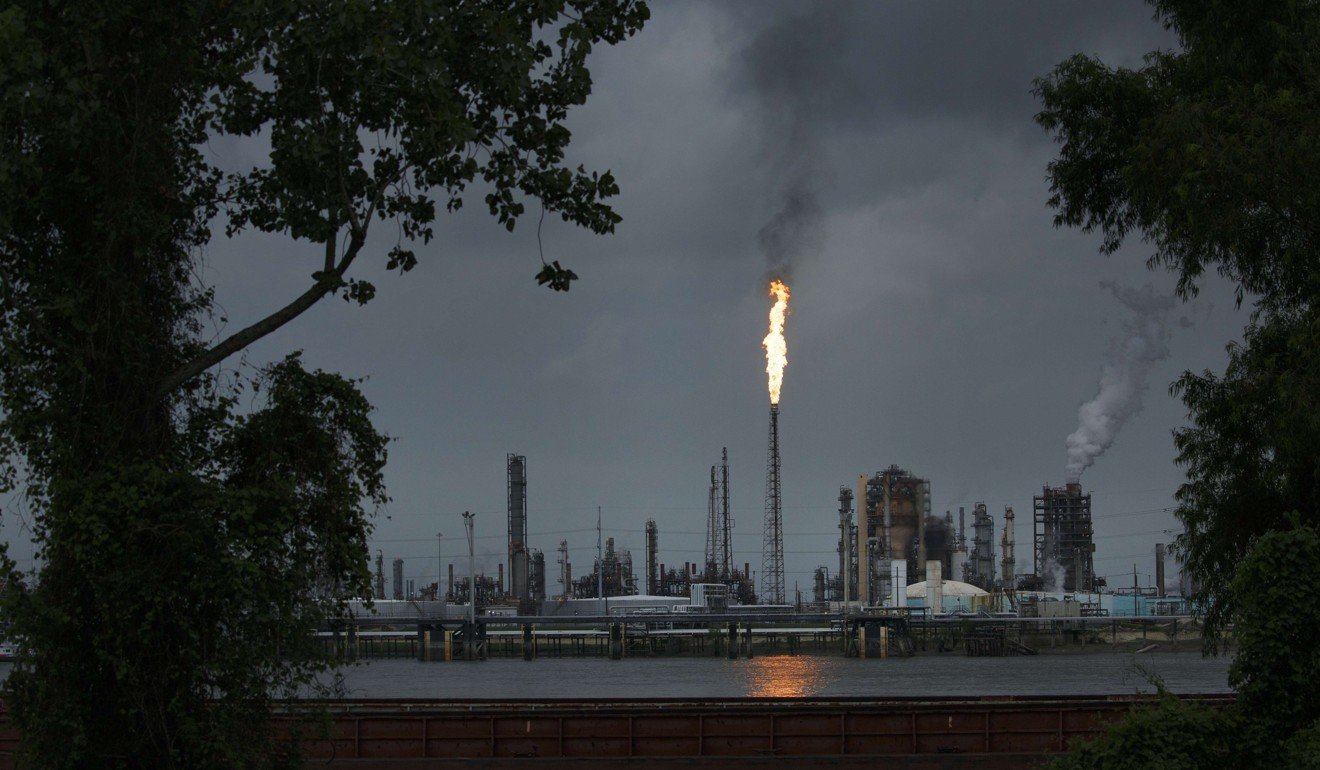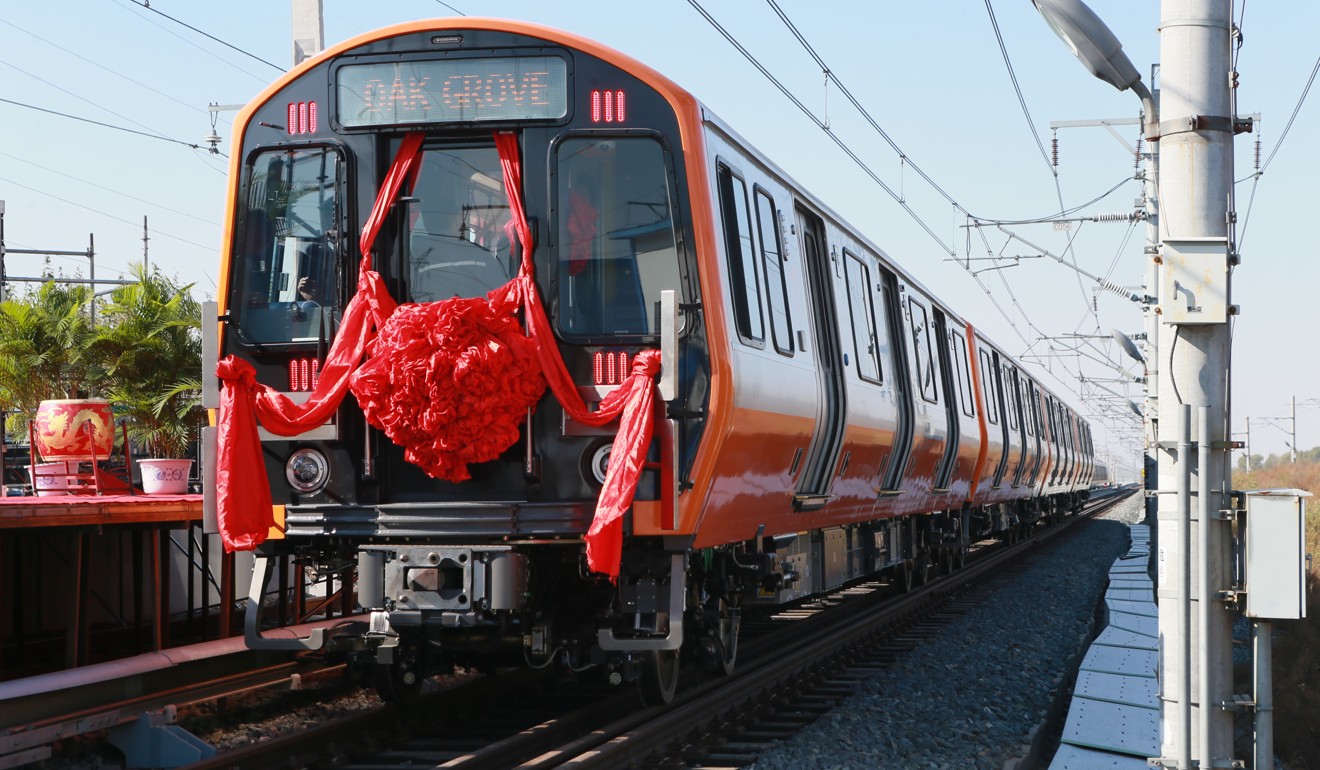
Amid trade war and local opposition, Chinese chemical firm Wanhua drops plan to build plant in Louisiana
- Community activists claim victory after the Yantai-based company withdraws its land-use application for a US$1.25 billion manufacturing complex
- ‘You get the sense investors are putting projects on ice until there’s some confidence that some of worst of the trade war can be avoided,’ an analyst says
In the latest setback for Chinese companies investing in the US during the trade war, a state-owned chemical firm is hitting the pause button on a US$1.25 billion plant in Louisiana.
The retrenchment for a project that has been on the drawing board since 2014 comes as Chinese firms operating in the US face growing headwinds amid a grinding tariff showdown, mutual recriminations and mounting visa and security restrictions as the world’s two largest economies battle for pole position.
William Day, a manager with Wanhua Chemical Group Co’s US operation, said the company “decided to change the scope of the project” citing higher capital costs, adding that the company was still looking for US sites to build the massive plant at a later time.
The setback comes as a growing number of Chinese companies struggle, retrench and navigate shifting political and economic winds. A report by the China General Chamber of Commerce, an umbrella group of 1,500 China-related companies operating in the US, said fear tied to the trade war was undercutting the business environment for its members.

In the chamber’s 2019 annual survey, 54 per cent of respondents said they had no plans to upgrade, acquire or expand operations in the US, a near doubling of the 30 per cent who expressed similar disinterest in 2014. And three-quarters said they were “uneasy” about the state of US-China relations.
“Chinese companies have felt a decline in the general US business, investment and trade environment,” said Evan Pan, a research associate with the chamber. “Our member companies have been forced to respond to the trade war by either delaying their investments or readjusting their global supply chain networks.”
Wanhua declined to provide detailed reasons behind its decision not to build the plant to produce methylene diphenyl isocyanate, an ingredient in polyurethane foam used in vehicle interiors, furniture, bedding and carpet padding. But local environmental and community groups, and business development officials said it likely hinged on several factors.
The new rules are deterring both Chinese and US companies from even opening discussions, and that will only lead to, sadly, a lose-lose situation for both of our economies
The chemical company, based in Yantai, China, faced growing criticism and resistance from environmental and community groups in St James Parish, Louisiana’s term for a county. The parish is 50 per cent African-American and has 32 petrochemical plants – one for every 656 residents. “There are enough already,” said Parish Council member Clyde Cooper.
The trade war also appeared to play a part. The company planned to prefabricate massive parts of the plant in China and assemble them in the US, a point of tension with local residents who argued that American construction workers should get the work given the US tax breaks that Wanhua stood to receive.
These modules include large amounts of steel subject to the large import tariffs that US President Donald Trump has levied on Chinese imports.
“There was a lot of criticism about how they were building everything in their country,” said Wilma Subra, head of the environmental consultancy Subra Co. “The jobs were there rather than here.”
Other potential factors, local activists say, include a 2016 explosion at Wanhua’s plant in Yantai that killed four people and injured several others, undercutting the company’s reputation locally and potentially reducing its appetite for foreign expansion.
And the price of natural gas has nearly halved in recent years as fracking technology has improved, which may have affected underlying finances.
Don Pierson, secretary of Louisiana economic development, which has worked closely with Wanhua and other companies to spur local investment, said he remained optimistic that the company would locate elsewhere in Louisiana.
“The global economy is not as robust as it has been, there are certain tensions between the US and China, there were a fair number of factors,” he said.
Chinese firm to double capacity of US$1.9 billion US methanol plant
Pierson said environmental groups’ claims that companies investing in Louisiana cut corners or that this part of St James Parish suffered higher cancer rates than elsewhere was based on unreliable information.
He added that he also hoped for a quick resolution of the US-China trade war. “There’s no scientific basis for some of these claims made by a number of these organisations,” he said. “Both the US and China remain focused on finding a beneficial solution to benefit both nations.”
Critics said Wanhua struggled with community outreach, permits, public relations and the very different US business culture compared with China’s more top-down system. Chinese companies, weaned in a country where police quickly squelch protests, are sometimes taken aback by the strength of US environmental, health, labour and community protesters.
“They certainly didn’t tell the truth to the parish council,” said Anne Rolfes, director of the Louisiana Bucket Brigade, part of the coalition opposing Wanhua’s application. Chemical companies are not great communicators in general, but Wanhua fell below that already low standard, she added.
Trump’s tariff delay ‘adds momentum’ for talks – but is a deal likely?
Said Rolfes: “They claimed to be a privately owned company when they were obviously owned by the government of China. These were some pretty obvious falsehoods.”
Although hi-tech investment, including that involving Huawei Technologies and its latest generation telecommunications equipment, has been the strongest focus of US suspicion, distrust is increasingly affecting companies like Wanhua in more traditional industries.
Among the latest to find itself in the US cross hairs is Chinese state-owned rail-car maker CRRC Corp, which recently completed a US$100 million plant in Chicago after an investment ofUS$95 million Springfield, Massachusetts, in 2014.

Selling competitively priced passenger coaches to US cities seemed like a solid bet for Qingdao-based CRRC, an offshoot of the Railway Corp of the People’s Liberation Army, given crumbling US infrastructure, China’s rapid rail expansion and the relative lack of competition in North America.
But that bet is looking increasingly shaky after federal lawmakers attached a provision to the huge military spending bill that would block federal funds from going to state-owned or state-controlled rolling stock companies, a measure aimed squarely at CRRC.
Amid claims that listening devices in subway cars could pose a security threat, the move appears aimed primarily at blunting China’s growing competitive threat and challenging its state-led economic model.
“Federal dollars should not support Chinese state-controlled enterprises that want to undermine US manufacturers and overtake our supply chain that supports rail and bus manufacturing,” said Democratic Senator Sherrod Brown of Ohio, a co-sponsor of the Transit Infrastructure Vehicle Security Act. The bill enjoys bipartisan support and appears likely to pass.
According to the research firm Rhodium Group, Chinese foreign direct investment in the US declined sharply to US$5.4 billion in 2018 from a peak of US$46.2 billion two years earlier, driven by rising US-China tensions and growing Chinese currency controls.
The figure was US$3.1 billion for the first half of 2019, but so-called greenfield projects – those built from scratch – saw a marked decrease in early 2019 over 2018 levels, the firm said, even before the Wanhua pullback.
“Wanhua was one of biggest pending greenfield projects in the past couple of years,” said Cassie Gao, a Rhodium senior analyst. “Investors are putting projects on ice until there’s some confidence that some of worst of the trade war can be avoided.”
This coincides with a spate of lay-offs by Chinese companies in recent months. Huawei pared 600 US jobs at its Futurewei subsidiary. Lenovo announced 500 lay-offs globally, including an unspecified number in the US. Seres, a Chinese electric car start-up formerly known as SF Motors, announced in July that it was eliminating 17 positions in its Silicon Valley office.
On other fronts, fellow Chinese electric car marker NIO severed 70 workers and closed an office in Silicon Valley in May. And Chinese venture capital firm Sinovation Ventures closed its Silicon Valley office early this year as its US investment activity dried up.
Senator wants US government to probe if rail tech from China is a threat
Many companies are also bracing for revised rules due out from the Committee on Foreign Investment in the United States (CFIUS) before moving ahead. Under the Trump administration, the US inter-agency review committee has been much more aggressive in blocking deals it deems detrimental to national security.
“The new rules are deterring both Chinese and US companies from even opening discussions, and that will only lead to, sadly, a lose-lose situation for both of our economies,” said Pan of the chamber. “It has become more difficult for everyone.”
Barbara Washington, a 68-year-old retired retail worker who lives a mile from Wanhua’s proposed site, said she was pleased at the company’s change of heart.
“I believe tariffs were a factor in their decision,” said Washington, whose family has lived in St James Parish for generations. “The US and China have a trade war going on as we speak. They were trying to get out of paying tariffs. This is an event to celebrate.”
The heavy concentration of petrochemical plants along the Mississippi River from Baton Rouge to New Orleans has earned the area the nickname “cancer alley”. In a report released in April, however, the Louisiana Tumor Registry, an arm of the state’s Office of Public Health, found no conclusive evidence of higher cancer rates in the St James area.
Critics say business interests have located so many plants in this part of the state because the impoverished, poorly educated, heavily minority community hasn’t until recently offered much resistance. After the Wanhua showdown, they believe that has changed.
Start-ups caught in middle of US-China tech cold war as investors pull back
“Most people felt there wasn’t anything they could do about this,” said Washington, who is African-American. “So many people in this area have died of cancer,” she added, including her sister, who succumbed to metastatic lung cancer in 2012 without having ever smoked.
Wanhua is the latest in a string of US and foreign companies promising in their applications to spur the local economy. “They say they’re going to do this and that, but it never happens,” Washington said. “We are not developed. You have to go 15 or 20 miles to get some bread or milk. We pay taxes and don’t see anything back into the area.”
Local activists said there was a good chance Wanhua would regroup and try again somewhere else along the Mississippi River, given its strategic transport links and access to inexpensive hydrocarbons. In the meantime, they said they would savour their victory.
“We beat them,” said Rolfes. “Don’t let the door hit you on the way out.”

